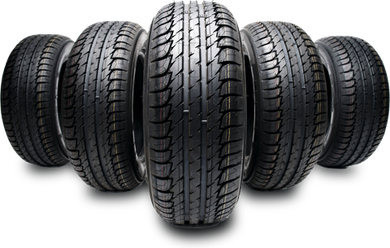Save Big with Mopar Tire Service Specials in Morris: Limited Time Uses
Wiki Article
Tire Service: Recognizing Tire Stress Monitoring Equipments
Comprehending Tire Pressure Monitoring Equipments (TPMS) is an essential aspect of maintaining optimum lorry performance and safety on the roadway. With developments in automotive technology, TPMS has become a common attribute in contemporary automobiles, giving real-time details on tire stress levels.
Importance of TPMS
The relevance of Tire Pressure Surveillance Solutions (TPMS) lies in their capacity to enhance automobile security and performance with real-time monitoring of tire stress levels. Preserving the proper tire stress is critical for making certain optimal handling, braking, and total security of a lorry. TPMS gives vehicle drivers with immediate responses on any type of overinflated or underinflated tires, enabling prompt adjustments to be made.
Parts of TPMS
Consisting of different necessary aspects, a Tire Stress Surveillance System (TPMS) functions as a sophisticated security function in contemporary vehicles. The primary parts of a TPMS include sensing units, a control module, and a caution sign. Sensing units are normally located in the tire shutoff stem or connected to the wheel setting up, where they measure tire stress and transfer information to the control module. If it detects considerably low stress in any of the tires, the control component procedures this information and activates a caution. The warning indication, commonly a symbol on the dashboard, signals the motorist to check the affected tire or tires. Some progressed TPMS versions likewise display the actual tire stress analyses for every tire, offering motorists with real-time information to make sure ideal tire efficiency and safety and security. By checking tire stress continuously, TPMS helps prevent accidents, decreases tire wear, and boosts gas performance, making it an important component for car safety and efficiency.
Sorts Of TPMS

On the other hand, indirect TPMS depends on the automobile's wheel speed sensing units to check tire pressure. This system detects underinflation by comparing the rotational rates of the wheels. Indirect TPMS is much less pricey than straight TPMS, as it makes use of existing sensing units within the lorry.
While straight TPMS supplies much more precise readings, indirect TPMS is easier in design and commonly needs less upkeep. Both systems have their advantages and restrictions, and the option between them usually depends upon factors such as cost, lorry make, and go to my blog personal choice. Recognizing the differences between these 2 kinds of TPMS can assist lorry proprietors make informed choices regarding tire upkeep and safety.
TPMS Maintenance Tips
Conduct regular checks on the tire stress degrees and compare them with the TPMS analyses to ensure they are consistent. Throughout tire turning or substitute, make certain that the TPMS elements are handled meticulously to protect against any kind of potential damages. If the TPMS cautioning light illuminates on the control panel, deal with the problem quickly by checking the tire stress and the total system for any try these out type of mistakes.Benefits of Appropriate Tire Stress
Maintaining appropriate tire pressure, as emphasized in TPMS Maintenance Tips, is vital for gaining the many advantages related to ideal tire stress degrees. One of the key advantages of maintaining the proper tire stress is boosted fuel efficiency. When tires are appropriately blown up, there is much less moving resistance, causing much better fuel economic situation. Furthermore, proper tire stress makes certain also tire wear, expanding the life-span of the tires and promoting safer driving conditions. With the best tire stress, lorries additionally have much better handling and grip, especially in unfavorable climate condition. This Check This Out can boost overall driving efficiency and security for the chauffeur and passengers. Moreover, maintaining ideal tire pressure can contribute to a smoother and more comfortable experience by decreasing resonances and noise triggered by underinflated tires. To conclude, the benefits of proper tire stress surpass just tire durability; they incorporate enhanced gas efficiency, improved security, much better lorry efficiency, and general driving convenience.Conclusion
Finally, comprehending tire pressure tracking systems (TPMS) is essential for maintaining optimum tire pressure and making sure car safety and security. By recognizing the relevance of TPMS, being familiar with its parts, knowing the various types readily available, sticking to proper upkeep suggestions, and recognizing the benefits of keeping correct tire stress, chauffeurs can boost their driving experience and lengthen the life expectancy of their tires. Appropriate tire stress is crucial to risk-free and reliable vehicle procedure.
Report this wiki page